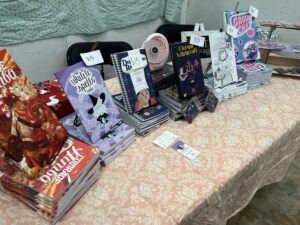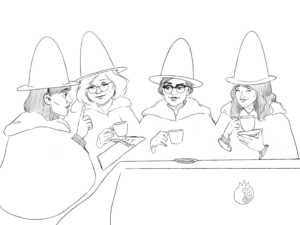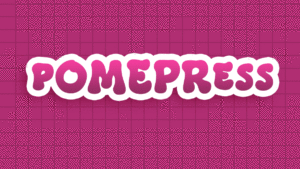Not to brag, but last year I read ninety-five books. I know, I’m pretty impressed too. Even better, more than 80 percent of those books were by women! I was pretty proud of myself for going cold turkey on white male authors, but then I realized that only 20 percent were by authors of color… which is actually pretty embarrassing! So, for 2017, my goal is to read more diversely. I’m already not off to a great start (only 1 of 10 is by an author of color), but I’m ready to get back on track. Hopefully this list (in no particular order) will motivate you to broaden your reading horizons, too!
1. Homegoing by Yaa Gyasi
Published June 2016
Yes, I know this is already out. And, yes, I’ve already read it. And, also yes, I know every reviewer and their bestie has recommended it, but seriously: This book is amazing. Following a family’s bloodline generation after generation, the narrative is complex yet unfolds seamlessly; the characters are compelling and in turns heartbreaking and delightful. Gyasi weaves together a generational story that made everything in me pay attention and not really want to do necessary things like work or sleep.
2. Blackassby A. Igoni Barrett
Published July 2015
Blackass takes place in Nigeria and is about a black man who wakes up as a white man but has retained his original derriere. Promises to be satirical and hilarious. A nontraditional search for identity that I’m really excited to check out.
3. The Round House by Louise Erdrich
Published October 2012
Louise Erdrich is a Native American writer giving a much-needed voice to contemporary Native narratives–an area that I think is often overlooked when discussing diversity. In elementary school we learn that Christopher Columbus colonized the Americas. In high school we learn that he did so by wiping out the native people and cultures. After that, well, we don’t really think about America’s past, unless it’s Thanksgiving and we’re gently reminding one another that this holiday is about genocide. Because of our society’s willingness to forget the unseemliness of of our past, I wanted to make sure I included at least one Native writer on this list. The Round House, told from the point of view of thirteen-year-old Joe, takes place on a reservation in North Dakota in the aftermath of a brutal assault on Joe’s mother. Erdrich gives the narrative the complexity it deserves–delicately balancing a crime narrative with a coming of age story, while not losing sight of the underlying struggle for survival of Native American culture.
4. The Stone Sky by N. K. Jemisin
Coming August 2017
If you have never read anything by N. K. Jemisin, please remedy this as soon as you can. She writes so tightly and with such precision, and her science fiction is unlike anything I’ve ever read. The Stone Sky is the conclusion to her Broken Earth trilogy–set somewhere like earth but with a planet beset by constant environmental upheaval and seismic activity. Orogones can control this activity, but they’re treated like lower class citizens, shunned and viewed as something to be killed or desperately controlled. This trilogy is about more than the world literally breaking itself apart. It’s about a mother and daughter, about the family you’re born into and the family you choose, about making your way in the world and doing what needs to be done.
5. Kindred by Octavia Butler
Published June 1979
My commitment to reading diversely is not just about reading nonwhite authors and narratives different than my own. It’s also about confronting other sides of narratives, even when–especially when–they make me uncomfortable. In Kindred, Dana, an African American woman from 1976, is suddenly sent back in time to 1815 Maryland, when slavery is still alive and well. From all accounts, this is a book that pulls no punches and doesn’t let the reader look away from the abuse and evil that was perpetuated in our past. Kindred may be classified as science fiction due to the time travel, but none of the atrocities Butler describes here are fiction.
6. Age of Anger by Pankaj Mishra
Coming February 2017
Coming in the early days of Trump’s presidency, Age of Anger seems particularly relevant to the direction our society is headed. It’s not just Trump being the forty-fifth president of the United States, it’s that across the world hate is rising and violence is increasingly commonplace. While I don’t think this book will help me make peace with that, I think it will help me better understand how we got here.
7. Labyrinth Lost by Zoraida Córdova
Published September 2016
My one true genre is YA fantasy and I’m so excited to get my hands on this. (I’m currently #1 on the waiting list at my library!) While some YA fantasy mixes in nonwhite characters (Jesper and Inej in Leigh Bardugo’s Six of Crows and Lady Fire in Kristin Cashore’s Fire come to mind), the majority of YA I see is pretty dang white. A Latin American coming of age story with magic, a majority of nonwhite characters, and an author who is actually part of that culture is something I want to see more of on my bookshelves.
8. The Vegetarian by Han Kang
English translation published February 2016
Set in South Korea, The Vegetarian takes what’s pretty common in America–going vegetarian–and dials the weird up to eleven. Not just because such a thing isn’t common in South Korean culture and violates social mores, but also because the main character is haunted by bloody dreams and her life starts to unravel. I don’t read a lot of work in translation, but hopefully this will change that!

By committing to reading diversely in 2017, I’m not looking for a single book to sum up the black or Latinx or Native American or any other ethnicity or culture’s experience. I want to support authors of color and look for narratives that juxtapose the universal with the singular: how we all love and hurt and struggle, but none of us in the same way or under the same circumstances.
It’s going to take some determination to keep me on track this year, but I’m willing to put forth the effort. Keeping a log of what I’m reading helps, and so do challenges like Book Riot’s Read Harder. The books listed above are just a sample of what’s out there (biased by my own preferences), so I encourage you to see for yourself!
Featured image via Unsplash.












